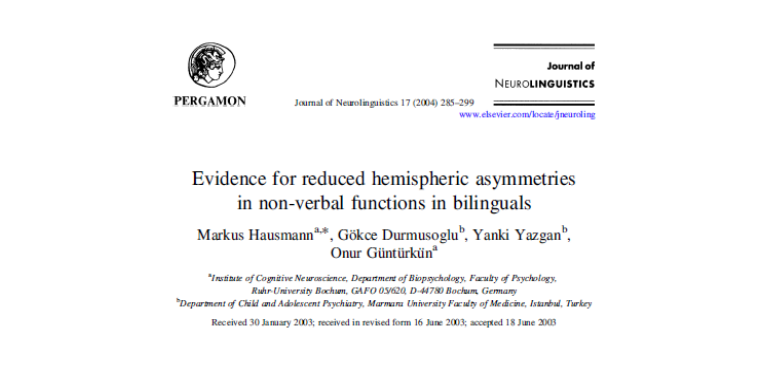Abstract
Hemispheric asymmetries in verbal and non-verbal visual half-field tasks were studied in highly proficient Turkish– German bilinguals. Besides a typical left-hemisphere advantage in word matching for both languages, a reduced right-hemisphere advantage in face discrimination in bilinguals was found as indicted by response times measures. In contrast, monolingual controls showed typical hemispheric asymmetries in both tasks. The results suggest that language experience affects the cerebral organization of non-language abilities which are known to show a right hemisphere advantage. It is conceivable that the acquisition of a second language leads to substantial modifications in various cortical areas, and thus affects cerebral organisation of other functional domains.
Keywords: Lateralization; Language; Language proficiency; Language acquisition; Word matching; Face discrimination; Turkish–German bilinguals

